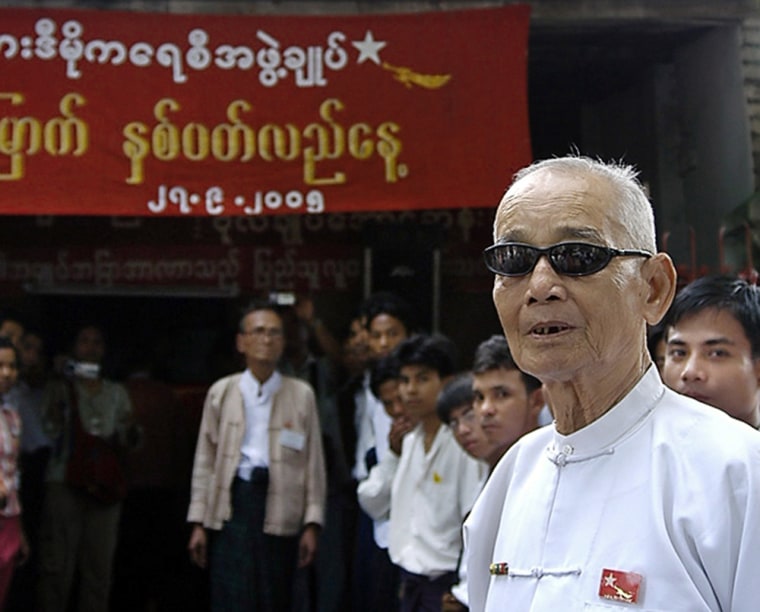Myanmar’s military junta is holding more than 1,100 political prisoners and allegedly uses torture on a routine basis and continues to harass pro-democracy activists, a U.N. human rights investigator said Wednesday.
Paulo Sergio Pinheiro said serious human rights violations also continue to be perpetrated against Myanmar’s ethnic minorities, citing widespread reports of forced labor, rape and other sexual violence, extortion and expropriation by government forces.
In the report to the U.N. General Assembly, he expressed serious concern about the continued house arrest of pro-democracy activist and Nobel Peace Prize laureate Aung San Suu Kyi, saying her virtual solitary confinement and lack of access to colleagues from her National League for Democracy political party “run counter to the spirit of national reconciliation.”
Fearing her popularity, the military has detained Suu Kyi repeatedly, most recently in 2003.
Despite the welcome release of 249 political prisoners on July 6, Pinheiro said “there reportedly remain over 1,100 political prisoners in Myanmar, including monks, lawyers, teachers, journalists, farmers, politicians, student leaders, writers and poets.”
He expressed disappointment that U Win Tin, a 75-year-old editor and poet imprisoned for 16 years, had been told on July 6 of his imminent release but remains in Insein prison.
A failed attempt at rebuilding the government
The military junta seized power in 1988 and called elections in 1990 but refused to hand over office when Suu Kyi’s party won overwhelmingly. Last year, it called a national convention to set guidelines for a new constitution as part of a process to eventually hold free elections but Suu Kyi was not allowed to participate and her party boycotted the convention.
Pinheiro warned that if representatives of the democratic opposition aren’t involved in the national convention, “any constitution that emerges will lack credibility.”
All offices of Suu Kyi’s party remain shut with the exception of its headquarters in the capital, Yangon, “and political party members are consistently liable to politically motivated prosecution and incarceration,” Pinheiro said.
He expressed concern at “ongoing allegations of the pervasive and systematic use of torture and ill-treatment by the authorities against persons in pre-trial detention,” citing at least four deaths in custody between January and July.
Pinheiro, who has not been allowed to visit Myanmar since November 2003, said he has received reports that detainees “are often subjected to prolonged deprivation of sleep, food and water during initial interrogation, which may stretch over several days.”
